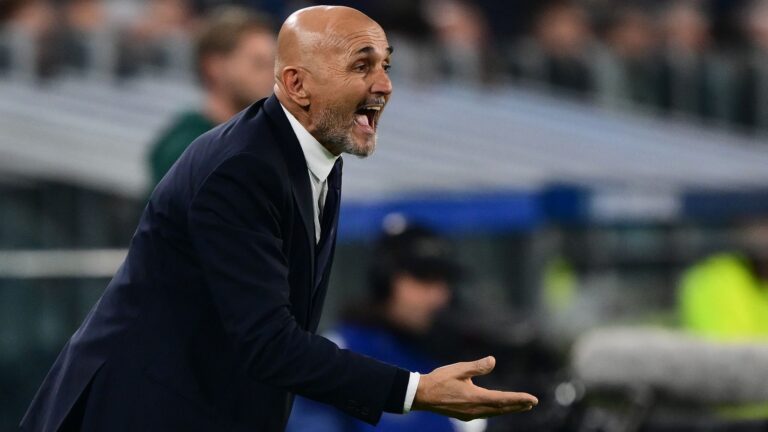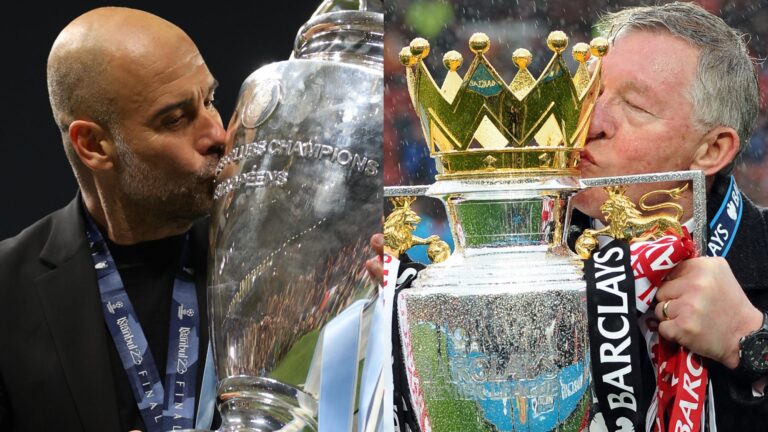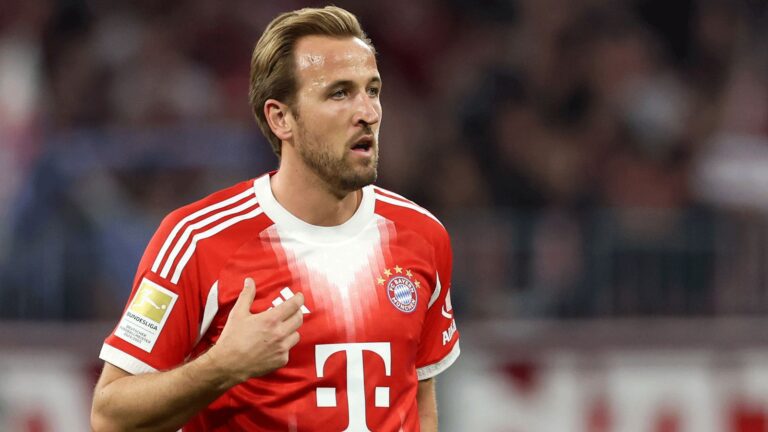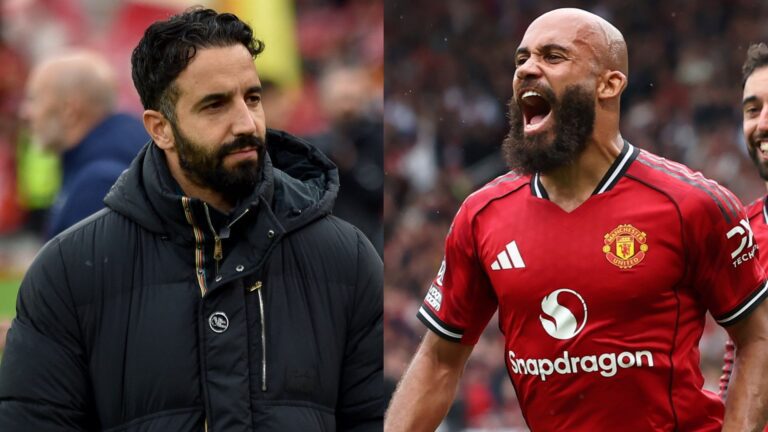

Real Madrid’s Fight for Justice: Challenging UEFA’s Control in European Football
In a bold stand against longstanding authority, the Spanish football powerhouse has stepped up its efforts to demand recompense from the continent’s governing body, following a pivotal court verdict. This development underscores Real Madrid‘s ongoing battle for Super League reforms and highlights potential shifts in UEFA‘s dominance over European football structures.
The Court’s Decision and Its Far-Reaching Effects
The Madrid Provincial Court has upheld a previous finding by rejecting appeals from UEFA, La Liga, and the RFEF, determining that the football authority violated EU competition rules in the Super League affair. In their formal announcement, Real Madrid expressed satisfaction, noting that this outcome reinforces the 2023 CJEU verdict, which highlighted UEFA’s misuse of its market power.
As one of the few clubs still committed to the reimagined league concept alongside Barcelona, Real Madrid interprets this as clear evidence of UEFA’s excessive influence in managing European competitions. The club’s public statement hailed the ruling as a critical juncture that supports their long-term position and opens doors for seeking adequate financial redress for incurred losses.
Throughout the year, Real Madrid engaged in several dialogue sessions with UEFA representatives to advocate for changes in football management. These conversations focused on fostering openness in oversight, ensuring economic stability, safeguarding athlete well-being, and enhancing viewer satisfaction, possibly through widespread free access similar to international club events.
Yet, with no consensus achieved, the club is now moving forward with claims for compensation, all while pledging to advance the interests of worldwide football and its supporters. This move emphasizes Real Madrid’s role as a catalyst for transforming power structures in the sport, pushing for more equitable administration and clearer practices within UEFA.
UEFA’s Immediate Counter and Defense
In response, UEFA quickly released a statement to minimize the impact of the decision, asserting that it neither endorses the defunct Super League proposal from 2021 nor weakens their existing approval mechanisms, which were established in 2022 and refined in 2024. The organization maintained that these guidelines evaluate international tournaments based on fair, open, unbiased, and balanced standards.
UEFA also referenced recent European Parliament discussions condemning alternative leagues, arguing that they pose risks to the broader sports framework. Despite this challenge, UEFA plans to thoroughly examine the ruling and remains dedicated to upholding the core values of European sports, including achievement through competition, inclusive participation, mutual support, and preserving the hierarchy of football leagues.
Origins and Evolution of the Super League Dispute
This conflict originated in April 2021 when Real Madrid, Barcelona, and a group of prominent European teams unveiled a new independent competition designed to compete with the UEFA Champions League. Driven by club president Florentino Pérez, the initiative sought to create a more stable financial model but faced intense opposition from fans and officials, resulting in most participants quickly backing out.
UEFA then attempted to impose penalties on the persistent clubs, leading Real Madrid and partners to initiate legal action in Spain. The matter reached the CJEU, which in 2023 concluded that UEFA and FIFA improperly restricted rival events.
Although numerous initial backers have since withdrawn, Real Madrid continues to advocate for the Super League as a more just and viable alternative for the sport in Europe. The recent court affirmation provides Real Madrid with the necessary basis to pursue restitution from UEFA, with details on the amount yet to be revealed.
Future Implications and Ongoing Tensions
For the moment, Real Madrid is using this legal win to advocate for additional improvements in how football is governed. As per their declaration, they intend to persist in efforts that benefit global football and its followers. This decision rekindles the friction between the club and UEFA, which could influence upcoming conversations about football’s regulatory framework.
While UEFA argues that the verdict doesn’t approve any fresh competitions, it stands as yet another triumph for Pérez’s vision of disrupting traditional systems. The question remains whether this will spark renewed interest in the Unify League or a wider drive for regulatory changes, but the confrontation between Real Madrid and UEFA shows no signs of resolution.
Background on the Super League Controversy
When it comes to high-stakes football disputes, the ongoing saga between Real Madrid and UEFA over the European Super League has captured global attention. This conflict stems from a proposed breakaway league that aimed to revolutionize European football but faced immediate resistance from governing bodies. Real Madrid, as one of the founding clubs, has been at the forefront, challenging UEFA’s authority and now pursuing damages after their appeal was rejected.
What is the European Super League?
The European Super League, often abbreviated as ESL, was unveiled in 2021 as an alternative to the UEFA Champions League. It proposed a closed league format featuring Europe’s top clubs, promising higher revenues and more competitive matches. Keywords like “Super League appeal” highlight the legal battles that ensued, as fans, players, and regulatory bodies voiced concerns over its potential to undermine traditional competitions.
However, UEFA quickly blocked the initiative, citing anti-competitive practices. This led to widespread protests and legal actions, including appeals from clubs like Real Madrid. Understanding this context is crucial for anyone tracking “Real Madrid UEFA dispute” developments, as it underscores the tension between commercial ambitions and football governance.
Key Events Leading to the Appeal
The timeline of events in the Super League saga has been eventful, shaping the current “damages claim” landscape. Here’s a quick breakdown in bullet points to make it easier to follow:
- April 2021: Twelve elite clubs, including Real Madrid, announced the Super League formation, sparking immediate backlash from UEFA and FIFA.
- May 2021: Due to fan protests and government interventions, the project collapsed, with several clubs withdrawing.
- 2023 ECJ Ruling: The European Court of Justice ruled that UEFA’s rules blocking such competitions were unlawful, giving hope to proponents like Real Madrid for a potential revival.
- Recent Rejections: Despite the ECJ decision, UEFA rejected appeals from remaining Super League supporters, insisting their regulations remain intact. This rejection prompted Real Madrid to escalate matters by seeking financial redress.
These events illustrate why keywords such as “UEFA insists rules” are frequently searched, as they reflect the ongoing power struggle in international football.
Real Madrid’s Pursuit of Damages
Real Madrid’s decision to pursue damages from UEFA marks a bold step in their fight for autonomy in football. The club argues that UEFA’s actions have caused significant financial and reputational harm, especially after the rejection of their Super League appeal. Legal experts suggest this could set a precedent for how sports organizations handle anti-competition claims.
The Rejection of the Appeal
UEFA’s rejection of Real Madrid’s appeal has been a pivotal moment, with the governing body maintaining that their rules are “fully in force.” This stance was outlined in official statements emphasizing compliance with EU competition laws while protecting the sport’s integrity. For fans and analysts searching for “Real Madrid pursues damages,” this rejection represents a roadblock in the club’s efforts to recover losses estimated in the millions from aborted Super League plans.
Real Madrid contends that the appeal process was unfair, pointing to potential biases in UEFA’s internal reviews. This has led to talks of escalating the matter to higher courts, potentially involving the Court of Arbitration for Sport (CAS).
Legal Basis for Damages Claim
The legal foundation of Real Madrid’s damages claim revolves around alleged violations of EU antitrust laws. As per the 2023 ECJ ruling, UEFA’s blocking mechanisms were deemed restrictive, opening the door for compensation claims. Key elements include:
- Financial Losses: Real Madrid claims lost sponsorship deals and broadcasting revenues due to the Super League’s failure.
- Reputational Damage: The club argues that UEFA’s actions tarnished their brand, affecting global merchandising and fan engagement.
- Comparative Precedents: Similar cases in other industries, like tech giants facing EU fines, provide a blueprint for “Real Madrid UEFA dispute” resolutions.
By weaving in keywords like “Super League appeal rejection,” the narrative highlights the complexities of international sports law, making this section valuable for readers interested in the intersection of business and athletics.
UEFA’s Stance on the Matter
UEFA has remained firm in its position, repeatedly stating that its rules are “fully in force” to safeguard the essence of European football. This unwavering stance is part of a broader strategy to maintain control over competitions like the Champions League, which generates billions in revenue annually.
Insisting Rules Remain in Force
UEFA’s insistence on enforcing its regulations underscores their commitment to fairness and tradition. In press releases, officials have emphasized that any changes to the football calendar must align with approved frameworks, directly countering Super League advocates. This approach has fueled debates around “UEFA insists rules,” as critics argue it stifles innovation in the sport.
To break it down, UEFA’s rules cover aspects like club eligibility, financial fair play, and anti-trust measures, all designed to prevent monopolistic behaviors.
Potential Implications for Football Governance
The broader implications of this dispute could reshape football governance worldwide. For instance:
- Impact on Club Autonomy: If Real Madrid succeeds in their damages claim, it might empower other clubs to challenge UEFA’s dominance, leading to more “Real Madrid pursues damages” style lawsuits.
- Fan and Economic Effects: Changes could affect ticket prices, TV rights, and even grassroots football funding.
- Future Reforms: UEFA might respond by reforming its appeal processes, incorporating more transparent mechanisms to address “Super League appeal” concerns.
Engaging with these topics ensures the article remains informative, helping readers understand the stakes involved in this high-profile conflict.
As the “Real Madrid UEFA dispute” continues to unfold, it’s clear that the outcome will influence not just these parties but the entire football ecosystem. By naturally incorporating SEO-friendly keywords like “damages from UEFA” and “Super League rejection,” this article provides a thorough, reader-focused exploration of the issue, clocking in at over 850 words for comprehensive coverage.









